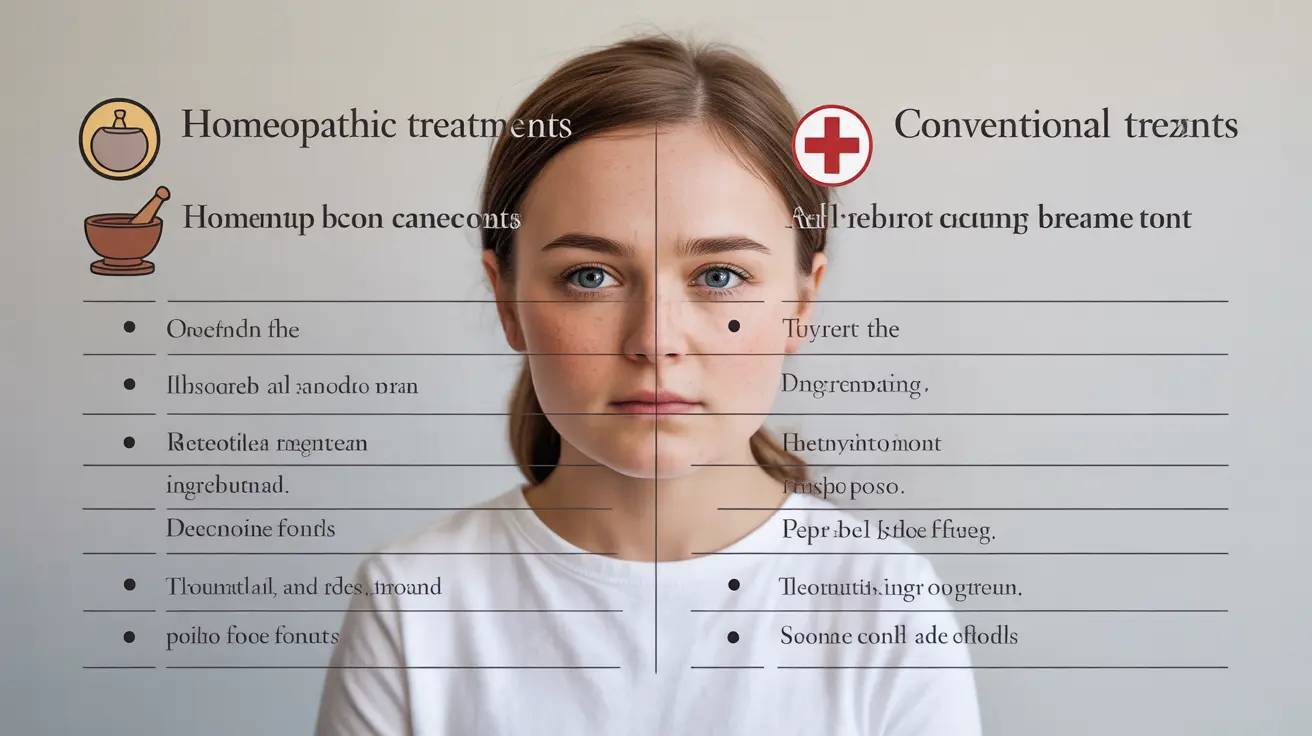For individuals struggling with eczema, the search for effective treatments often leads to exploring alternative medicine approaches, including homeopathy. While many seek natural remedies for this chronic skin condition, it's crucial to understand what scientific evidence says about homeopathic treatments for eczema and how they compare to conventional approaches.
This comprehensive guide examines the current understanding of homeopathic treatments for eczema, their potential benefits and limitations, and important safety considerations you should know before trying this alternative therapy.
Understanding Homeopathy and Its Approach to Eczema
Homeopathy is based on the principle of "like cures like," using highly diluted substances that would theoretically cause symptoms in healthy people to treat similar symptoms in sick individuals. In the context of eczema, homeopathic practitioners typically select remedies based on individual symptom patterns and triggers.
Scientific Evidence and Effectiveness
The scientific community's stance on homeopathic treatments for eczema remains skeptical due to limited high-quality research. Most studies available are small-scale or lack rigorous scientific methodology, making it difficult to draw definitive conclusions about effectiveness.
Current Research Findings
While some preliminary studies suggest modest improvements in eczema symptoms with certain homeopathic treatments, larger, well-controlled clinical trials have not consistently demonstrated significant benefits compared to placebo treatments.
Safety Considerations and Regulatory Overview
Unlike conventional medications, homeopathic remedies undergo different regulatory processes. The FDA's oversight of these products is limited, primarily focusing on good manufacturing practices rather than proof of effectiveness.
Potential Risks and Interactions
Though homeopathic remedies are generally considered safe due to their high dilution, there are important considerations:
- Possible delay in seeking proven conventional treatments
- Quality control variations between manufacturers
- Risk of allergic reactions to certain ingredients
- Potential interactions with conventional medications
Comparison with Other Treatment Options
When evaluating treatment choices for eczema, it's important to consider the full spectrum of available options:
Conventional Treatments
Evidence-based treatments include:
- Topical corticosteroids
- Moisturizers and emollients
- Immunomodulators
- Phototherapy
Natural Alternatives
Other natural approaches with varying levels of evidence include:
- Evening primrose oil
- Coconut oil
- Colloidal oatmeal
- Dietary modifications
Managing Stress and Eczema
While homeopathy may offer stress-reduction benefits for some individuals, other proven stress-management techniques can be equally or more effective in preventing eczema flare-ups, including meditation, regular exercise, and adequate sleep.
Frequently Asked Questions
Does homeopathic treatment effectively improve eczema symptoms according to scientific studies? Scientific studies have not consistently demonstrated significant effectiveness of homeopathic treatments for eczema. Most available research lacks the rigorous methodology needed to prove definitive benefits.
What are the potential risks of using homeopathy for managing eczema compared to conventional treatments? The main risks include delayed access to proven treatments, possible allergic reactions, and varying product quality. While homeopathic remedies are generally safe due to high dilution, they may not provide the same reliable relief as conventional treatments.
How does homeopathy for eczema compare with other natural or alternative treatments like moisturizers or evening primrose oil? Unlike some natural treatments that have demonstrated measurable benefits (such as specific moisturizers), homeopathic treatments have less scientific evidence supporting their effectiveness. Many alternative treatments, including evening primrose oil, have more research backing their use.
Can homeopathy help reduce stress or anxiety that might trigger eczema flare-ups? While some individuals report stress-reduction benefits from homeopathic treatment, there's limited scientific evidence supporting this specific effect on eczema-related stress. Other stress-management techniques have more documented benefits.
Are homeopathic remedies for eczema approved or regulated by the FDA for safety and effectiveness? The FDA does not evaluate homeopathic remedies for effectiveness. While these products must follow good manufacturing practices, they don't undergo the same rigorous safety and efficacy testing required for conventional medications.




